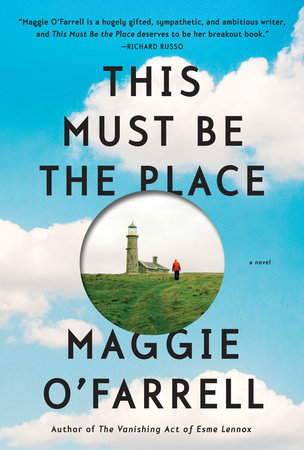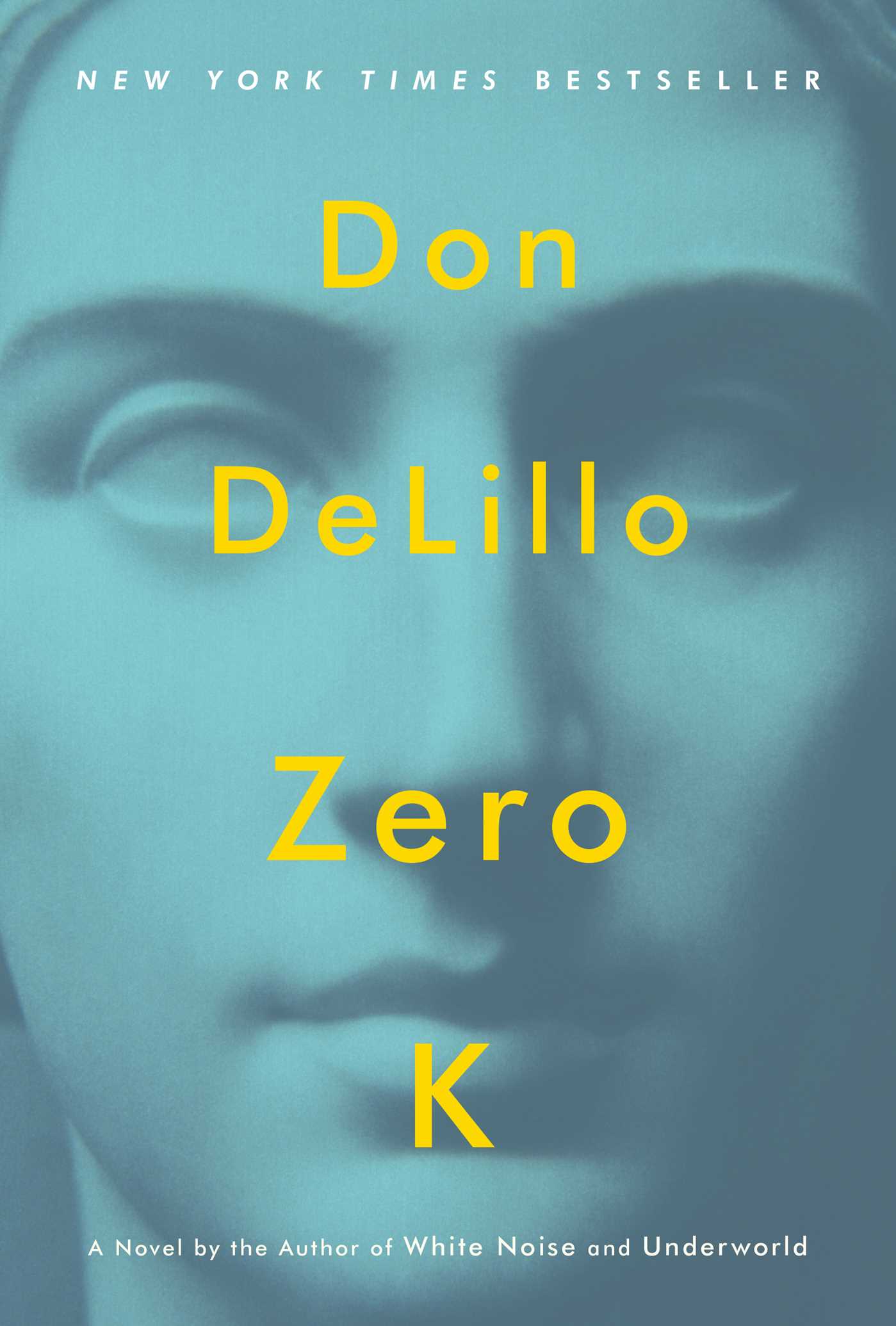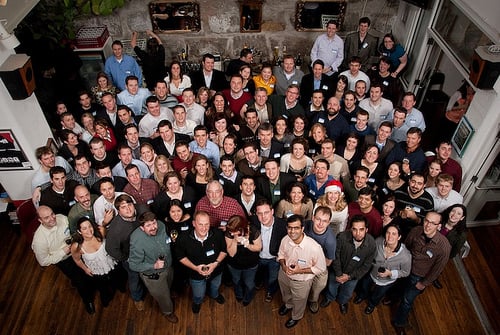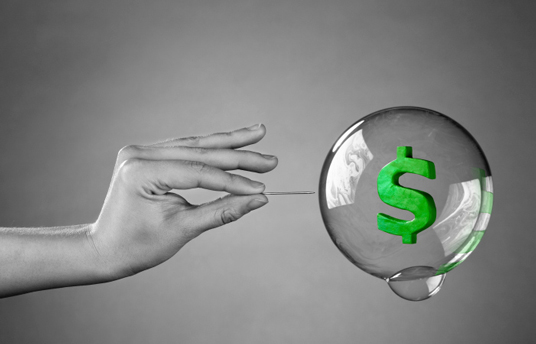Should your book club read The Lonely War by Nazila Fathi? The answer is absolutely yes! This wonderful memoir was the 2015-16 season's nonfiction selection for Literary Masters book groups and salons, and almost everyone loved it. I say 'almost' because some people only 'liked it a lot'. Some avid nonfiction readers said it was the best nonfiction book they had read in ages. Everyone agreed that it is worth reading and also important reading, considering what's going on in the world today.
So, what can your book club discuss?
Warp-speed plot summary: Nazila Fathi was born in Tehran in 1970 and was all of nine years old when the revolution occurred and ushered in a whole new world for the Iranian people. Although many families fled the country, Nazila's stayed, and she grew into adulthood in the new Islamic state. Fluent in English, Nazila was eventually hired to write for the New York Times until she and her family (her husband and two children) were forced to flee the country in 2009. In this memoir, Nazila takes the reader through her journey as well as the journey of the country of Iran and its people. As the years progress, we witness the growing pains of each as they grapple with new identities.
You'll want to talk about how/whether this book has affected your view of Iran and the Iranian people. Literary Masters members are well educated and very engaged in world affairs, but still, almost everyone said they learned quite a bit about the revolution and the people involved--and about what the Iranian people wanted. You'll want to discuss the Iranians' desire for democracy--and what has happened to it since 1979. You'll want to think about how US and British historical actions (think
Moussadeq) affected the Iranian's attitude toward the West and helped contribute to bringing about the revolution. You'll want to connect all of this to today's world, of course--a long conversation in itself!
Related to the above, you'll want to discuss what you think Iran's main problem is. And you'll definitely want to discuss what it is that you admire about Iran.
You'll want to discuss the class system in Iran and how the regime used it to further their aims. Was is a mutually beneficial relationship? Who came out ahead and who came out behind as a result of all the tumult? Ask yourselves: How responsible is the class system for the revolution? Also ask yourselves: Does anything like this exist in America?
You'll want to talk about the various ideologies vying for power in Iran. Talk about how those who are in power get and remain there. Also, talk about the ways ordinary citizens survive or thrive under the various power structures. Also, talk about university students and technology--and the power that resides there!
You'll want to talk about Iran in relation to its neighbors. Talk about how you think Iranians feel about themselves in comparison to other countries in the region. And how they feel about their political leaders, both historical and current.
You'll want to talk about national security vs. individual freedoms: how do you feel about this debate with regard to our country after reading this book? How do we balance the two? If one side deserves more weight than the other, how do we keep it in check so we don't topple over?
You'll want to discuss Ms. Fathi's parents and how they dealt with all the changes they were going through. If there was one criticism of the book from Literary Masters members, it was that they wanted to know more of the personal experiences of the family. (Sequel, Ms. Fathi?)
You'll want to talk about the experience of women in Iran. Try to look at is AS a woman in Iran. And of course, look at it AS a western woman (or whatever you may be). This was quite the discussion in all Literary Masters groups! You will definitely want to discuss the veil!
You'll want to talk about oil and its effect upon the people of Iran.
You'll want to talk about Ms. Fathi. Do you think she offers a balanced view or is she biased in her telling of Iran's recent history? The subtitle is "One Woman's Account of the Struggle for Modern Iran." Is she acknowledging bias on her part? Does her memoir connect you to the Iranian people or to Islam or to Iranian culture or to anything/anyone else in a new way?
You'll want to talk about the relationship between the author and her maid. How do you feel about the choices Ms. Fathi makes? How do you feel about the choices the maid makes?
Well, this should get you started! Let me know how your book club enjoys discussing this wonderful memoir!
WHIRL (What Have I Read Lately) Books is a site for readers to find books for themselves and their book clubs. Liz at Literary Masters runs book groups and literary salons where we "dig deep" into literary treasures.
Friday, September 30, 2016
Friday, September 16, 2016
Literary Awards Season!
I just love this time of year, as you all know! Long lists and shortlists are out, and there is so much to 'dig deep' into! If you missed it, the 2016-17 Literary Masters LIST has been posted, and our October selection The Underground Railroad by Colson Whitehead has also landed on the long list for the National Book Award for fiction, while our May choice The Sellout by Paul Beatty is now short listed for the Man Booker Prize.
Here are the long list titles for the National Book Award:
The Underground Railroad by Colson Whitehead
Another Brooklyn by Jacqueline Woodson
Sweet Lamb of Heaven by Lydia Millet
News of the World by Paulette Jiles
Imagine Me Gone by Adam Haslett
The Association of Small Bombs by Karan Mahajan
The Throwback Special by Chris Bachelder
What Belongs to You by Garth Greenwell
Miss Jane by Brad Watson
The Portable Veblen by Elizabeth McKenzie
And here are the titles on the short list for the Man Booker Prize:
The Sellout by Paul Beatty
Hot Milk by Deborah Levy
His Bloody Project by Graeme Macrae Burnet
Eileen by Ottessa Moshfegh
All That Man Is by David Szalay
Do Not Say We Have Nothing by Madeleine Thien
Don't you just LOVE this time of year? Let me know what you're reading from the above lists!
Here are the long list titles for the National Book Award:
The Underground Railroad by Colson Whitehead
Another Brooklyn by Jacqueline Woodson
Sweet Lamb of Heaven by Lydia Millet
News of the World by Paulette Jiles
Imagine Me Gone by Adam Haslett
The Association of Small Bombs by Karan Mahajan
The Throwback Special by Chris Bachelder
What Belongs to You by Garth Greenwell
Miss Jane by Brad Watson
The Portable Veblen by Elizabeth McKenzie
And here are the titles on the short list for the Man Booker Prize:
The Sellout by Paul Beatty
Hot Milk by Deborah Levy
His Bloody Project by Graeme Macrae Burnet
Eileen by Ottessa Moshfegh
All That Man Is by David Szalay
Do Not Say We Have Nothing by Madeleine Thien
Don't you just LOVE this time of year? Let me know what you're reading from the above lists!
Tuesday, September 13, 2016
Why Read to a Child?
I am so moved by the story of a woman who passed away this week. And I didn't even know her. Anna Dewdney was just 50 years old, the mother of two girls, and an author of the very popular picture book series Llama Llama. This headline of a story in The Washington Post caught my eye: "This beloved children's author didn't want a funeral. She said read to a child instead."
The WAPO article refers to an opinion piece that Anna Dewdney wrote for the The Wall Street Journal in 2013. It's titled "How Books Can Teach Your Child To Care," and it eloquently lays out the argument that we should read to our children, and promote their reading, not just for literacy's sake, but because reading stories develops empathy in children. Here is an excerpt:
"However, empathy is as important as literacy. When we read with a child, we are doing so much more than teaching him to read or instilling in her a love of language. We are doing something that I believe is just as powerful, and it is something that we are losing as a culture: by reading with a child, we are teaching that child to be human. When we open a book, and share our voice and imagination with a child, that child learns to see the world through someone else’s eyes. I will go further and say that that child then learns to feel the world more deeply, becoming more aware of himself and others in a way that he simply cannot experience except in our laps, or in our classrooms, or in our reading circles.
We learn empathy as children, through our interactions with the people in our lives and by experiencing the world around us. When we read books with children, we share other worlds, and even more importantly, we share ourselves. Reading with children makes an intimate, human connection that teaches that child what it means to be alive as one of many beings on the planet. We are naming feelings, sharing experience, and expressing love and understanding, all in a safe environment. When we read a book with children, then children – no matter how stressed, no matter how challenged – are drawn out of themselves to bond with other human beings, and to see and feel the experiences of others. I believe that it is this moment that makes us human. In this sense, reading makes us human."
Perhaps this resonates with me so much because of what I do. Time and again in our Literary Masters Parent/Child book groups, I see the ability of stories to open the eyes and minds of our members as we explore sometimes difficult issues via the safe space of fictional characters. Time and again we try to 'get inside the head' of the villain so we can understand his or her motivations. Time and again we ask ourselves "What would we do in this situation?" Having these discussions makes us think about ourselves in relation to others; we become more empathetic as we imagine how it must it feel, or how it would be. We explore our own feelings and as we come to know ourselves better, we become more curious about others' feelings. In essence, we are learning to care.
You can read Anna Dewdney's obituary here. And yes, instead of a funeral, she asked that you read to a child. Wow. Talk about empathy.
Monday, June 20, 2016
Summer Reading!
This Must Be the Place by Maggie O'Farrell: Ah...this may be a little unfair because this title hasn't been released in the States yet. However, by the end of July you should be able to get your hands on this wonderfully charming novel--highly recommended! You'll ponder marriage, parenthood, and the many selves each of us contain as you read what is, at its core, a thoroughly enjoyable love story.
A Man Called Ove by Fredrik Backman: Another charmer, this time from a Swedish author, whose debut novel is taking the world by storm. About a grumpy man. Well, really about the stories each of us has hidden within, and about friendship, and connection. Enjoy!
My Brilliant Friend by Elena Ferrante: If you're one of the few people on the planet who hasn't read this gorgeous book about two Italian friends, you have a treat in store! Actually, four treats, because it's the first of four sumptuous Neapolitan novels. Be prepared to ignore loved ones for a long while.
Barbarian Days: A Surfing Life by William Finnegan: Well, we had to put this book as a beach read, right? Even if you're not a surfer, you'll enjoy the journey this author takes you on in this autobiography that won the Pulitzer Prize. He opens your eyes to new cultures and to, yes, the wonderful world of waves. Have fun!
Disrupted by Dan Lyons: No doubt you read an earlier WHIRL Books post about this hilarious memoir here. For fans of the HBO series Silicon Valley (and if you're not a fan, what is wrong with you???) and also for everyone who looks around the beach and thinks, "where did all these young people come from, and just how do they think they are making the world a better place?" Laugh out loud with some serious questions explored.
The Upstairs Wife: An Intimate History of Pakistan by Rafia Zakaria: If you can't visit Pakistan this summer, it can visit you. Exploring the personal as well as the public aspects of life in Pakistan, this eye-opener is a great nonfiction choice for the summer.
Everything I Never Told You by Celeste Ng: A gripping novel about a family whose daughter is found dead. How much did they really know about her? How much do they really know about each other? One of those books that absolutely lingers for days after finishing it.
High Dive by Jonathan Lee: Suspenseful and thrilling in its blending of fact and fiction. Remember the bomb that went off in Brighton, England, in 1984 in an attempt to assassinate the British Prime Minister and her cabinet? Meet the characters (invented by Lee) who will take you back there.
The Nest by Cynthia D'Aprix Sweeney: We loved the writing in this debut novel, and the four siblings, negotiating their lives around a future inheritance (i.e. the 'nest') will make lots of our own families look better by comparison. :-) A quick, breezy, enjoyable read.
I Do Not Come to You by Chance by Adaobi Tricia Nwaubani: This award-winning debut novel from Nigeria was part of our Literary Masters 2015-16 season, and it was a hit! You may not think you want to read a story about email scamming, but you will change your mind as the pages fly by! So funny but once again, important themes are mined. The best novel that book clubs don't know about.
Well, this ought to take care of your page-turning needs until we post our list! That should be some time in late August, so STAY TUNED!
Do you have any titles you'd like to recommend for summer reading? We'd love to hear from you!
Thursday, April 7, 2016
Should Your Book Club Read Disrupted by Dan Lyons?
I don't always have the time to post about every book that I think book clubs should read. However, one book that I highly recommend is The Circle by Dave Eggers. Everyone who uses the internet or is involved with technology should read that book. Every night while reading it I would think, "This is science fiction," and then the next morning I would read the newspaper and realize, "Actually, The Circle is realistic fiction--this is all happening right now!"
Another book that I think book clubs should read is Disrupted by Dan Lyons. If you're a fan of the series Silicon Valley (HIGHLY RECOMMENDED), you may know that Lyons writes for that show. I 'binge-watched' the entire series in one go and then ran around telling everyone I know to watch it. So, when I saw that Lyons had written a book, I picked it up.
Warp-speed plot summary: This is a memoir about Lyons' time after he gets fired from his job as an editor at Newsweek. He's 52 with a wife and two children and his career has suddenly come to a screeching halt. He's a journalist and the world of journalism is done--as is he. So he does what many 'older' workers have to do: he reinvents himself and enters the unknown and surreal world of tech start-ups. He lands a job at Hubspot, a 'hot' start-up, as "marketing fellow," and his experiences there are what he writes about. Lyons takes the reader on an hilarious and eye-popping journey as he acts as anthropologist and tour guide visiting an exotic and possibly dangerous tribe.
So, what can your book club discuss?
There is a lot to talk about, so in no particular order:
Another book that I think book clubs should read is Disrupted by Dan Lyons. If you're a fan of the series Silicon Valley (HIGHLY RECOMMENDED), you may know that Lyons writes for that show. I 'binge-watched' the entire series in one go and then ran around telling everyone I know to watch it. So, when I saw that Lyons had written a book, I picked it up.
Warp-speed plot summary: This is a memoir about Lyons' time after he gets fired from his job as an editor at Newsweek. He's 52 with a wife and two children and his career has suddenly come to a screeching halt. He's a journalist and the world of journalism is done--as is he. So he does what many 'older' workers have to do: he reinvents himself and enters the unknown and surreal world of tech start-ups. He lands a job at Hubspot, a 'hot' start-up, as "marketing fellow," and his experiences there are what he writes about. Lyons takes the reader on an hilarious and eye-popping journey as he acts as anthropologist and tour guide visiting an exotic and possibly dangerous tribe.
So, what can your book club discuss?
There is a lot to talk about, so in no particular order:
- You'll want to discuss the company culture and what that means. What kind of corporate culture is good? It's fascinating to think about how companies used to treat employees and how much that has changed, especially at technology companies in the Silicon Valley. How did this happen? What does it say about us as people, as a society? Is the way things are now better than they used to be? Is labor, as Lyons states, still being exploited by capital, but this time while wearing a big smiley face?
- Related to the above, talk about how a company gets its employees to "drink the Kool Aid." And then discuss how a company gets its customers to guzzle the same drink down. Do you think many companies really DO make the world a better place?
- Also related to the above, talk about the greed involved in all of this. What is the motivation of the various characters involved? Also discuss the flaunting of wealth. What do you think of this? Areas such as the San Francisco Bay Area have been greatly impacted by the tech companies, in both good and bad ways. Talk about this. We always hear about the housing prices making it unaffordable for 'ordinary' people to live in the area, but what about the values of the City? Is the immense wealth and its unabashed display impacting citizens' values and what they deem important, and how they behave?
- You'll want to discuss ageism. Well, you may not want to discuss it, but you should. It's real and it affects many people. Are you part of the problem? Do you think young people are smarter than old? Are they naturally better at understanding technology? Can they learn things that older people can't? How old is 'old' to you? How can we stop ageism? Or are the ageists right?
- You'll want to discuss the elephant in the room. How stupid do tech executives, their spin doctors, venture capitalists, and their spin doctors, as portrayed by Lyons, think we are? Do you think Lyons' depiction of these people is accurate? Is it high time someone pointed out the ridiculousness of the bubble, or is it, as a couple of execs claim in the story, not a bubble but "an unprecedented long boom"? What about the business model as Lyons describes it: "grow fast, lost money, go public."? How are companies (which are made up of people) getting away with this?
- You'll want to discuss the idea of marketing, PR, spin, and sales. Can truth exist in such an environment? Where is the responsibility of the press in all of this? Does an objective press even exist, or is every journalist also being 'spun'?
- There is a LOT of psychology in this book. People are playing 'mind games'--manipulating employees, investors, and customers. Other people seem to willingly let themselves be exploited. You'll want to discuss this. What are the motivating factors behind the roles the characters elect to play? What about the role you're playing? Lyons refers to a Silicon Valley adage--if we use online services, we are not the customers, we are the products--we exist solely to be packaged up and sold to advertisers. How do you feel about that?
- You'll want to discuss the author. Clearly, this is HIS story, and no one at Hubspot has a chance to speak up for him or herself. How much can we trust Lyons? Although he can be self-deprecating and admittedly acerbic, is he being completely honest with us? How about with himself? He criticizes the frat-boy culture, but then whoops it up with writers who don't seem any different. Is this a case of "Do as I say, not as I do"? Is the "tribe" that he feels more comfortable in vastly different when it comes to ageism, sexism, racism, and all the other --ism's? How much of what he goes through at Hubspot is his own fault? Is he being fair to Hubspot?
- You should also talk about how vulnerable we all are with regard to our data being online. How do you feel about Lyons' statement: "Even the people who supposedly manage our data have no idea where all of it resides or who has access to it."? Does it make you want to bury your head in the sand further?
Subscribe to:
Comments (Atom)

























